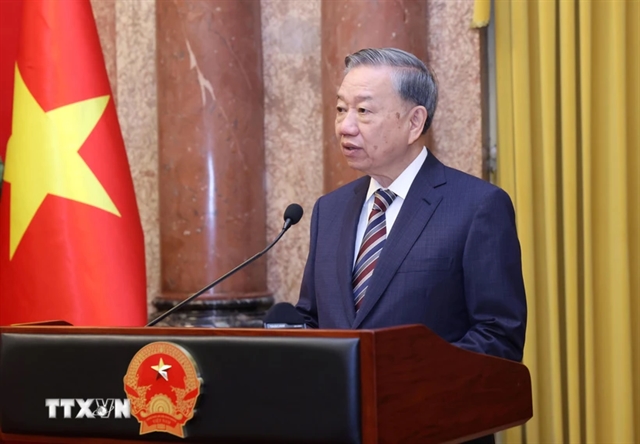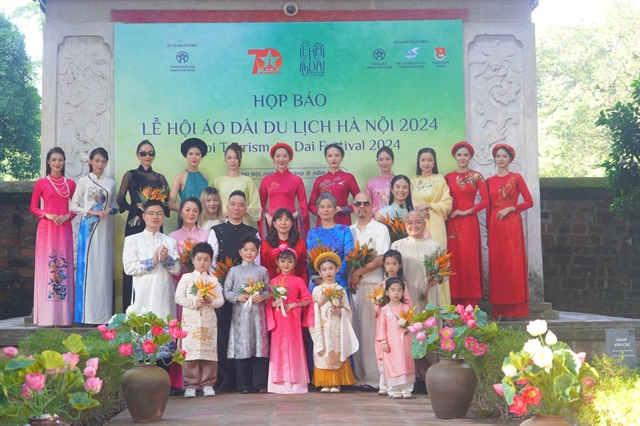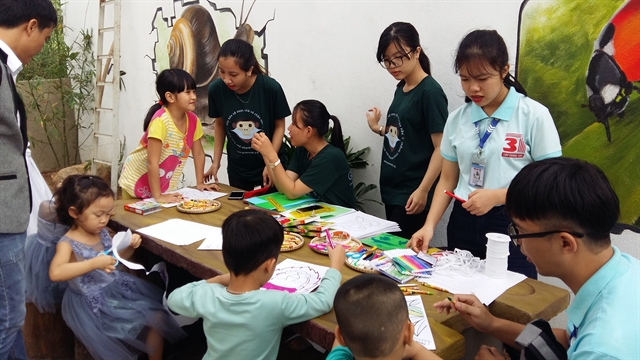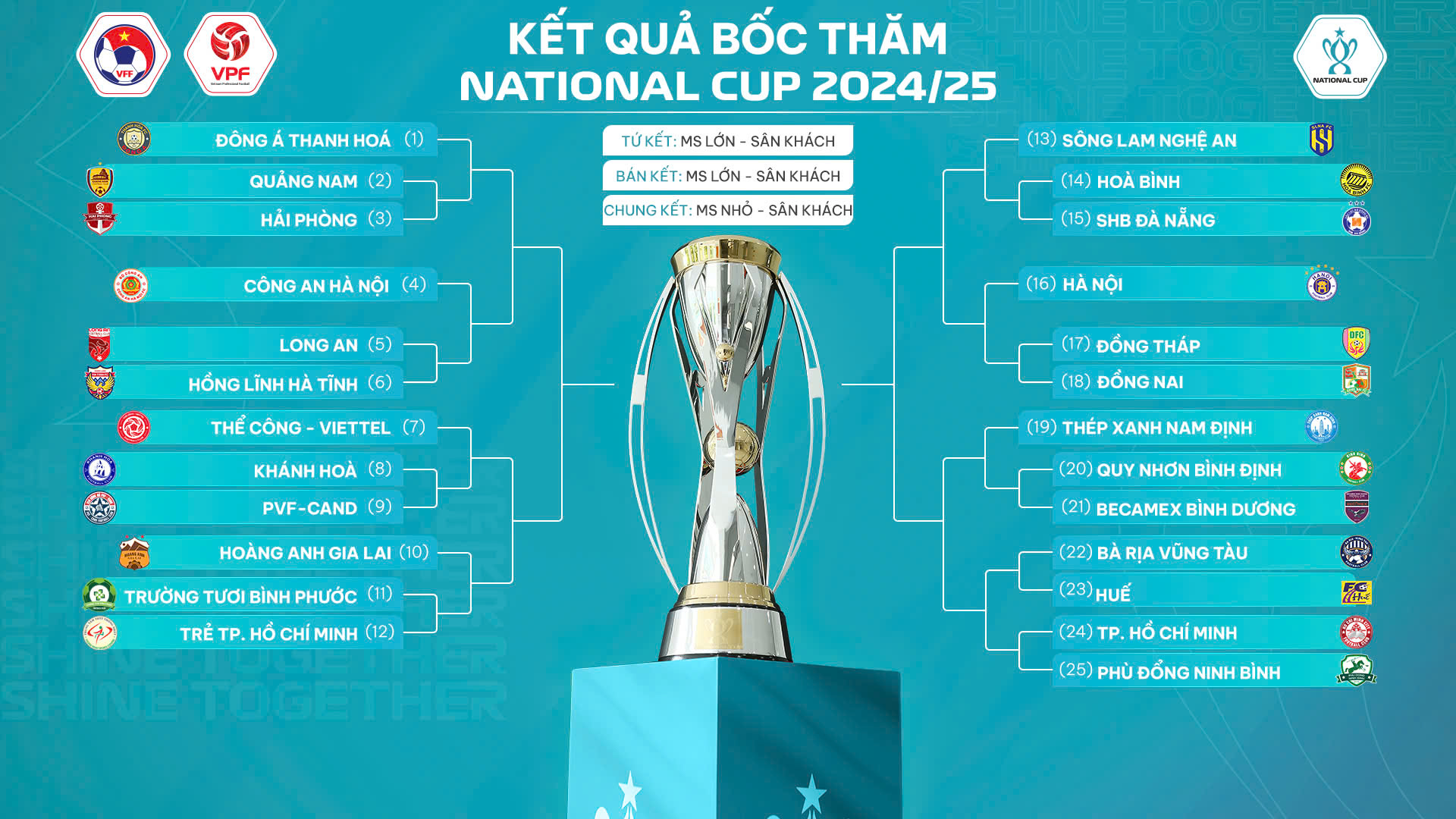▌Câu trả lời hay nhất
In the article,vietlott 15 10 2021 Tô Lâm writes that the Party’s leadership methods must continue to evolve to address new realities, while maintaining the core principles that have guided the nation’s revolutionary journey.
 |
| General Secretary of the Central Committee of the Communist Party of Việt Nam and President of the Socialist Republic of Việt Nam, Tô Lâm. VNA/VNS Photo |
HÀ NỘI — General Secretary of the Central Committee of the Communist Party of Việt Nam and President of the Socialist Republic of Việt Nam, Tô Lâm, has authored an article emphasising the critical need for renewing the Party’s leadership and governance methods.
He highlights that this renewal is not only necessary, but urgent, given the challenges Việt Nam faces as it embarks on a new revolutionary phase of national development.
In the article, Tô Lâm writes that the Party’s leadership methods must continue to evolve to address new realities while maintaining the core principles that have guided the nation’s revolutionary journey.
94 years of revolutionary leadership
Over the past 94 years, the Communist Party of Việt Nam has continuously refined its leadership methods, improving its governance capacity. Tô Lâm emphasises that this ongoing evolution has been crucial to preserving the Party’s integrity and strength. He notes that these refinements have allowed the Party to lead the nation through significant periods of change, ensuring Việt Nam’s stability and success in challenging times.
Now, as Việt Nam enters a new phase of growth and development, Tô Lâm stresses the importance of further renewing leadership and governance approaches.
He recalls that the concept of a 'ruling party' first introduced by V.I. Lenin in 1922, has been a cornerstone of Communist Party leadership. He points out that President Hồ Chí Minh expanded on this idea between 1925 and 1927 in his work 'The Revolutionary Path'. In this work, Hồ Chí Minh stressed the Party’s role in leading the working masses towards national liberation and the construction of a prosperous, communist society. Crucially, he underscored that the Party exists to serve the interests of the nation and its people, not its members.
He notes that Hồ Chí Minh reaffirmed this principle in his testament, writing, 'Our Party is a ruling Party'. He also points to Hồ Chí Minh’s work 'Correcting the Working Style' where he defined proper leadership as involving sound decision-making, effective organisation and thorough supervision, all of which should involve active participation from the people.
Party leadership: A foundation of Việt Nam’s success
Building on Marxism-Leninism and Hồ Chí Minh’s thought, Tô Lâm writes that the Party has consistently adapted its leadership methods to meet changing conditions. He explains that the Party’s Seventh Congress introduced the concept of renewing the Party’s leadership content and methods, which included clearly defining the relationships between the Party, the State and mass organisations. This approach has been essential in ensuring that Party leadership is based on democratic principles and sound governance practices, Tô Lâm writes.
In outlining the Party’s leadership role, he highlights the 1991 Platform for National Construction during the Transition to Socialism, which he says detailed the Party’s role in leading society through its platform, strategies, policies and by educating and mobilising the people. He stresses that the Party leads through persuasion, guidance, and the exemplary behaviour of its members, while avoiding interference with the functions of other political organisations.
He writes that the Party’s leadership must follow the principles of democratic centralism, collective decision-making and individual accountability. He points out that leadership is exercised through Party organisations rather than individuals, with collective decisions driving actions and ensuring effective supervision. This approach, refined through successive Party Congresses, has culminated in the Thirteenth Congress, which called for bold reforms in leadership methods to meet the demands of the new era.
He emphasises that the Party’s leadership role is enshrined in the Constitution of the Socialist Republic of Việt Nam. 'The Party leads, the State manages and the people are the masters' is the guiding principle of Việt Nam’s political system, according to Tô Lâm, who stresses that the Party remains at the centre of national leadership while respecting the state’s management role and the people’s mastery.
Achievements under Party leadership
Tô Lâm writes that under the Party’s leadership, Việt Nam has achieved remarkable success. He recalls that Việt Nam, once devastated by war, has emerged as a stable, peaceful country known for its economic dynamism and political stability. Tô Lâm highlights that Việt Nam now ranks among the top 40 global economies and plays a pivotal role in international trade, with 16 free trade agreements connecting it to 60 major global economies.
Diplomatically, he emphasises that Việt Nam has established relations with all 193 United Nations member states and maintains strategic partnerships with 30 countries. He also notes that the country is an active member of over 70 regional and international organisations.
In addition to these diplomatic and economic achievements, Tô Lâm writes that Việt Nam’s poverty reduction efforts have garnered international praise. The continuous improvements in the material and spiritual quality of life for the Vietnamese people, he adds, have solidified Việt Nam’s reputation as a success story on the global stage.
However, he acknowledges that challenges remain in the Party’s leadership methods. He writes that the overproduction of documents has resulted in some being vague or repetitive, while others are slow to be updated. Furthermore, he notes that some key policy directions have not been fully institutionalised and their practical applicability has been limited.
He stresses that the political system’s structure is still incomplete, with the roles, functions, and relationships between organisations and leaders needing clearer definition. He also points out that administrative reforms and changes in working styles within the Party have been slow to progress and the frequency of meetings remains excessive.
Renewing leadership and governance methods
To ensure the Party remains the driving force behind Việt Nam’s continued progress, the Party leader outlines several key tasks:
First, he emphasises the need for a unified understanding of the Party’s leadership and governance methods. He notes that the Party must avoid both overreach and laxity, leading through its ideology, policies, and exemplary conduct, while ensuring that leadership translates into effective governance.
Second, he stresses the importance of streamlining the Party’s organisational structure. He writes that advisory bodies must be strengthened, and officials must demonstrate high standards of political integrity and competence. He calls for reforms in working styles to prioritise professionalism and efficiency.
He emphasises the need for substantial reform in the process of issuing, disseminating and implementing Party resolutions. He writes that resolutions must be concise, clear and practical and must inspire confidence among Party members, businesses and the public.
He calls for continued reform in the Party’s inspection and supervision processes, particularly with a focus on advancing digital transformation. He writes that the introduction of digital systems will strengthen internal political protection and ensure transparency.
He concludes by invoking the words of V.I. Lenin: "When circumstances change, and we face different tasks, we should not look back and rely on yesterday’s methods." Similarly, he recalls General Secretary Lê Duẩn’s emphasis that "Leadership must be principled and steadfast, never wavering in the face of revolutionary challenges." These teachings, Tô Lâm writes, remain essential as the Party evolves its leadership and governance methods to stay resilient and adaptable in the face of new challenges. VNS











